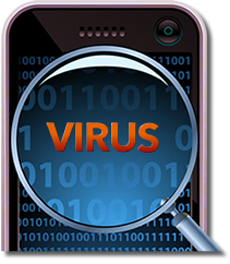Just yesterday I had a client who had tried to change the password for his wireless router by going to the support page of the manufacturer. After following the instructions he lost all connection with his router. The next day he was not able to get the computer to boot up. This was a previous client and I knew that he used his computer for his home based business. I was able to make a service call that same day to get his business up and running again. When I got to the client’s home and heard the whole story It was hard to understand. What he had done by going to the manufacturer web site for support was the correct thing to do. However the first thing he was presented with was a picture of a computer repair person offering to open a chat line.The client clicked on the chat link and he was quickly redirected to another web site. The manufacturer web site was infected with this re-direct link that actually hijacked the client. In the process of getting support the client was asked for a good phone number in case they were disconnected. Right after that they were disconnected and the client was called on the number he provided. It all seemed pretty professional to the client. He was a little concerned because the support person had such a strong accent that he was difficult to understand. The support person asked the client to go to a web site that would allow the technician to take control of the computer remotely. As soon as he took control the client could see the technician was in the system registry and that made him nervous. He tried to stop the process but the more he asked to quit the more upset the technician became. The client shut down the computer but the damage was done.
The point here to remember is you have to be very careful whenever you click on a link even when you start out on a well known web site. Now you might think that the client’s anti-virus should have picked up on this hack. I know most people swear by what ever anti-virus they are using but the malware of today can get around all anti-virus programs if the hacker has designed the malware to evade the Anti-virus. Over the counter anti-Virus programs only stop the most well known malware. Some people reading this article will think this could never happen to them. These hacks are pretty sophisticated and one wrong move and it’s all over. So what should you do to protect yourself from these internet hackers?
1. Always look at your address bar at the top to make sure you are still on the manufacturer web site when clicking on NEXT or anything else.
2. If you start out on linksys.com/support make sure that if you click to go to the next page that you see linksys.com in the address bar.
3. If you see as an example fast router support when you click next get the Bleep off that page.
4. Any page that is secure should start out HTTPS://computerdoctorboise.com. The S stands for security. All business web-sites should have a security certificate on file.
5. I know we live in a global economy but I don’t like talking with people who are speaking to me from a foreign country. I have nothing against people from other countries but when you talk with me it is easy to know who I am, where I live and what other people have to say about me. I have a licensed secure web site, I am registered with the secretary of state where I live and I am accredited by the better business bureau as well as having a verified phone number. All these things don’t make me a good guy they just make me accountable. Who do you contact when someone living in Nigeria hacks your computer?
6. Take the time to find a computer technician that you trust. Many times I can help my clients avoid a problem with a simple phone call.

